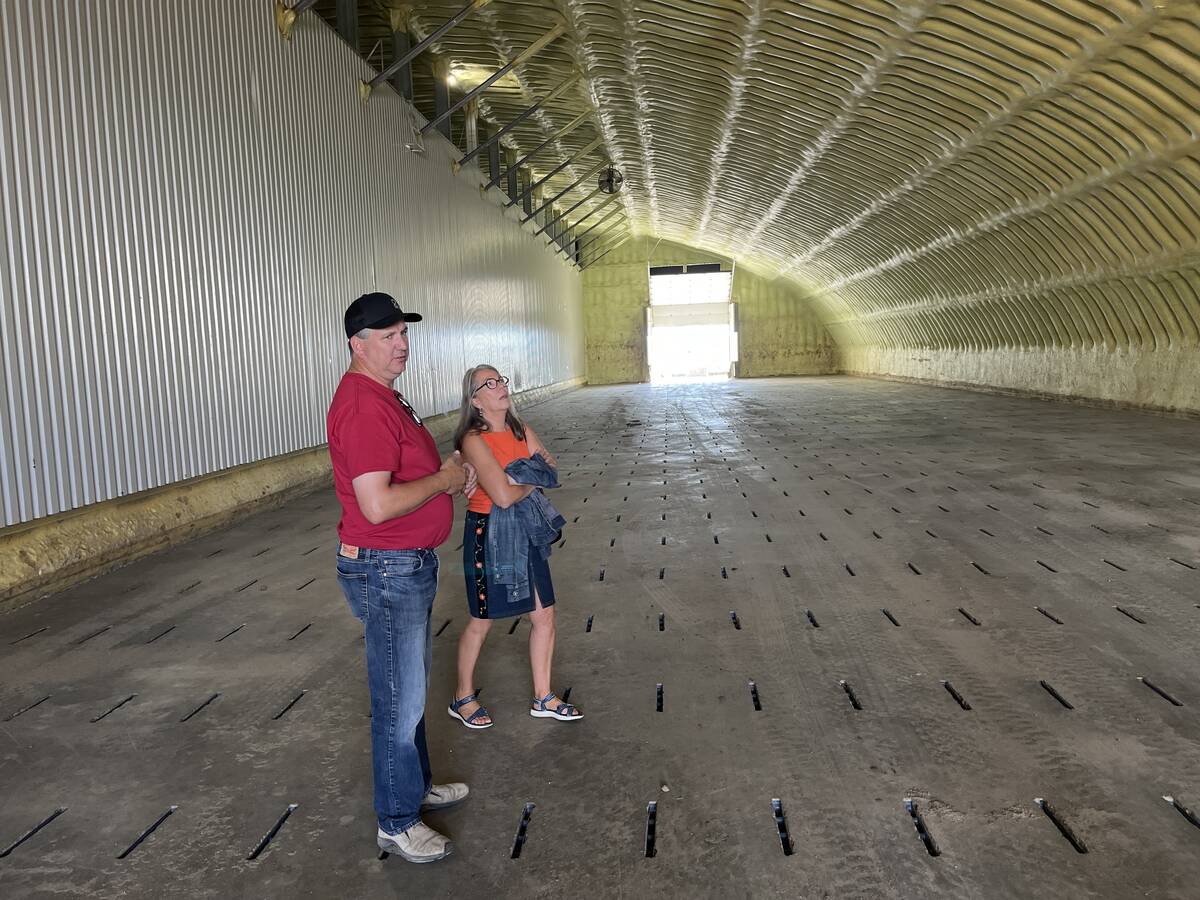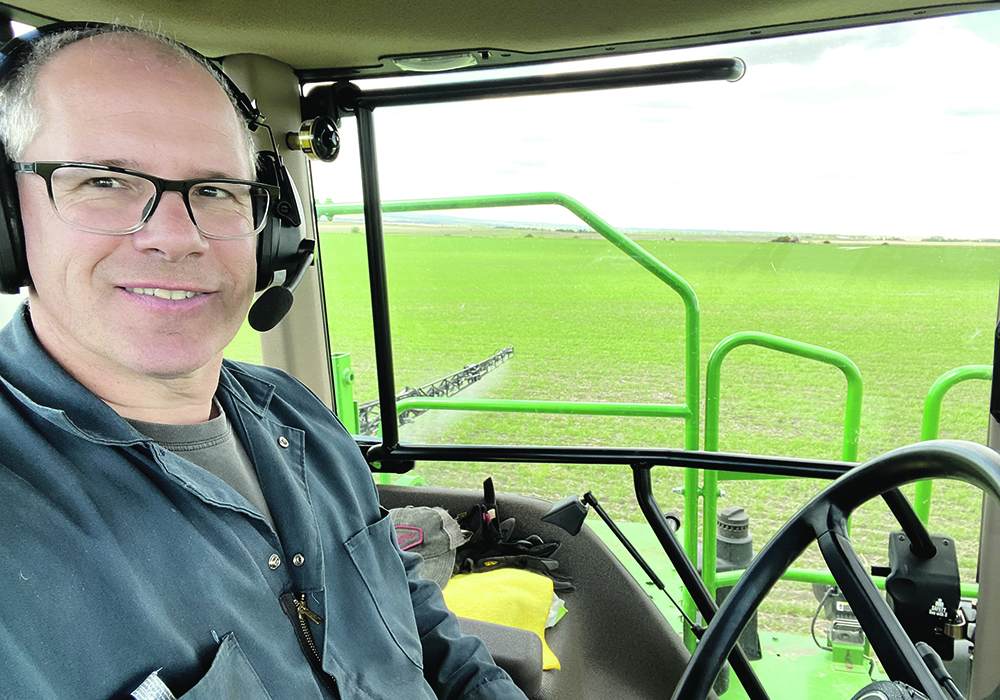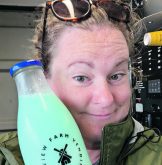Too many people who aren’t farmers are trying to define and enforce what sustainability means for agriculture, said an industry leader.
“I think the term, sustainability, has really — farmers have reached a saturation point with that term,” said Greg Sears, chair of the Alberta Wheat Commission.
“And you almost lose your audience when you start talking about sustainability and agriculture because that term has been thrown about by all sorts of different people in organizations, and so the frontline farmer I think has gotten to the point of tuning out a lot of things when we start talking about sustainability.”
Read Also

Potato farm requires year-round management
The most recent Open Farm Day in Alberta showcased agricultural producers across the province educating the general public about the process that is required is to get food to their table.
The Canadian Roundtable for Sustainable Crops has been working with producers and farm organizations to develop their own storytelling tool they can “use to tell the good story of sustainability of how we’re growing crops,” said chair Jason Lenz.
It was initially described as a code of practice because the term aligned with existing initiatives such as the Codes of Practice by the National Farm Animal Care Council. However, the roundtable plans to come up with a new he said.
A code of practice implies there will be verification of what producers are doing on their farms when in fact it will be voluntary, said Lenz, who is also the vice-chair of the Alberta Wheat Commission. “It’s just that term just did not have the right connotation.”
A report by the roundtable released in January 2022 said what was initially a draft of the Responsible Grain code of practice was meant to help Canadian agriculture maintain a competitive global advantage.
“Through this research, we heard a similar theme: Canadian grain exporters are increasingly being asked for more information about how our grain products meet sustainability standards. Furthermore, the number of these questions are increasing rapidly and are only expected to continue to grow.”
Exporters fear that competing countries are gaining an advantage in higher-paying markets because they already have sustainability programs, said the report. “Grain companies in Canada are actively looking for an industry accepted, science-based tool that highlights the sustainable practices that farmers are following.”
However, farmers told the roundtable “that we missed the mark with this draft, both in the tone and what was proposed as practices,” said the report.
Sears said parts of Western Canada had concerns about things such as land use criteria, including proposals involving drainage as well as the clearing of trees. “A lot of it had to do with farmers getting tired of being told what to do,” he said.
“And there’s a perception that the document was imposing rules upon producers, whereas I think the second draft will be more of a highlighting or demonstration of the best practices that do exist out in modern farming.” Lenz expected a final draft will be released this spring.
Sustainability has been taken over in many ways by marketers, “whether it’s McCain talking with their french fries, or Starbucks talking about coffee, or McDonald’s and eggs,” said Sears.
“The sustainability story has been spun so many different ways in food and grocery marketing that in some ways farmers feel excluded, and I think rightfully so a little bit defensive about all the good practices that we do on our farms not being recognized by some of these marketers and the systems that they talk about.”
Most Canadian farms are family-run operations striving to stay afloat in a “high technology, high stakes game,” said Sears. Although they are only a small fraction of Canada’s population, they must help feed a world that now contains eight billion people, he said.
Lenz said rising carbon taxes and proposed federal policies such as a 30 percent reduction in fertilizer emissions by 2030 have shaken the trust of producers. He feared political leaders unfamiliar with agriculture are making decisions that will seriously damage the viability of family farms that see themselves as the true protectors of the land.
“I think about some of these policies, like the greenhouse gas policy, how the carbon tax is putting a price on polluters, so that’s telling me that the government thinks that me and my farm is a polluter. That’s really disappointing to hear… that they haven’t taken the time to understand how farmers are protecting the environment rather than polluting the environment.”
The roundtable’s report said grain farmers need to do something to get ahead of the curve. Climate change and the impact of agriculture on the environment is a major concern of Canadian consumers, it said.
They are placing it above other concerns such as food security, food safety and animal care, said the report. “We know a lack of public trust specific to industry practices is often followed by heightened government regulations and/or restrictions.”
North American food companies, as well as the food service/retailer industry, have indicated strong support for a tool “that would allow them to easily respond to specific questions on how grain is produced in Canada and help farmers tell their story. Because of their reach with consumers, these companies believe that they could add value for farmers by sharing the story of agriculture.”
The report said regulations by foreign governments are increasingly affecting Canadian grain farmers. The European Union’s Farm to Fork Strategy has set targets for its producers that include reducing the use of chemical and hazardous pesticides by 50 percent.
“The EU intends to integrate Farm to Fork priorities into all interactions with third countries, bilaterally and multilaterally. One option they have been floating is a Border Carbon Adjustment, that is, a tax on imports from countries that have not taken the same measures as the EU countries have had to implement.”


















